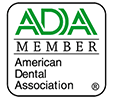It would be nice if we all developed perfect teeth from birth, but only a minor percentage of the population is so lucky. For some, it’s unplanned events that impact there teeth, such as disease or accidents. Others may just be born with conditions that can affect natural tooth development, such as hypodontia — which is explained in more detail below. If you have questions on the health of your smile, Dr. Gatta and his amazing team are always ready to answer all of your questions, in excellence.
You expect your baby to be born with all of the tooth buds they need to develop full sets of primary and permanent teeth, even if they aren’t visibly present in your child’s mouth. But sometimes, during a baby’s development, certain genetic patterns or events can change the formation of the teeth under the gums. When a child is born missing one or more of their tooth buds, this is known as hypodontia.
Causes of Hypodontia
According to the National Organization for Rare Disorders (NORD), a child’s primary teeth typically all erupt by age 3, and all permanent teeth usually arrive between the ages of 12 and 14 — with the exception of wisdom teeth. Hypodontia refers to the absence of one to five of these primary or permanent teeth.
A review article in BioMed Research International states that hypodontia results from a combination of genetic factors and environmental influences, such as trauma or infection. It’s also the most common craniofacial malformation occurring in humans, with a prevalence of 1.6% to 6.9%, depending on the population evaluated.
There are several terms used to describe specific forms of hypodontia:
- Congenitally missing teeth (CMT): a condition where the tooth buds do not form properly within the gums of an unborn child
- Tooth agenesis: when teeth fail to develop
- Oligodontia: the absence of six or more teeth
- Anodontia: the complete lack of teeth
Problems With Missing Teeth
CMT more commonly affects the permanent teeth than the baby teeth, according to a review in the Dental Research Journal (DRJ). The most commonly missing permanent teeth include one or more of the four wisdom teeth, the upper lateral incisors and the second premolars, as the American College of Prosthodontists explains.
Missing teeth can affect your ability to chew and your confidence in your smile. Additionally, missing teeth may pose functional concerns, as the other teeth in the mouth can move into the empty space and shift how the teeth come together. Ultimately, hypodontia can lead to problems with speech, gum damage and insufficient bone growth, as the DRJ review notes.
Treatment Options for Missing Teeth
Early childhood visits to a dental professional are incredibly important for many reasons. Learning preventive dental care early on will aid in the long-term health of your child’s teeth. Preventive dental X-rays at these visits are also very important, since they can often detect if any teeth are missing, according to NORD. With the help of these X-rays, your dentist can then assess the mouth, diagnose any missing teeth and help you and your child plan for appropriate tooth replacement.
In the event that one or more teeth are missing, your dentist will likely recommend replacement options, such as removable partial dentures, fixed bridges or dental implants. Sometimes, orthodontic treatment can also be used to close gaps between teeth, according to the DRJ review.
If your child is born without one or more teeth, or if they are older and missing adult teeth, you can work with your dental team to find a functional and aesthetically appealing solution to give them a full smile.
The best recourse for missing, broken, or damaged teeth is to visit a specialist like Dr. Gatta. Dr. Gatta is a Prosthodontist and has helped hundreds of patients recover critical mouth functionality. When restoring and repairing your smile, you want the best, and Dr. Gatta and his team provide the highest quality service and treatment. Contact the team today and get all your questions answered at InnovativeDentalAesthetics.com, and follow us on Instagram.com/InnovativeDentalAesthetics.
















